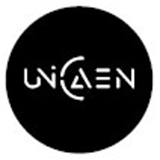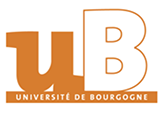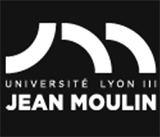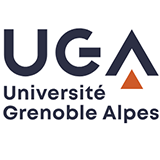Introduction
Founded in 1339, the University of Grenoble (Université Grenoble Alpes, UGA) is a national comprehensive research university with a history of nearly 700 years. It is one of the oldest universities in Europe and the third largest institution of higher education in France.
Overview
Number of students and faculty: There are about 45,000 students and more than 3,000 researchers. Every year, more than 5,000 foreign students from more than 100 countries and regions study here.
Campus distribution: Located in the southeastern French city of Grenoble, the campus is mainly distributed in the towns of Saint-Martin-d'Herré and Gué in the eastern suburbs of the city, covering an area of nearly 200 hectares. It is one of the largest university towns in France with the most concentrated universities.
History
Founded on May 12, 1339 by Humbert II, Count of Wayne and prince of the Holy Roman Empire, it initially taught civil law, religious law, medicine and art.
The Faculty of Science was established in 1811 and in 1941 In 1968, France carried out higher education reforms, and the traditional Grenoble University was divided into three, namely Grenoble I, Grenoble II, and Grenoble III. On January 21, 2015, the merger document was promulgated to establish the "Grenoble-Alpes University Group", and it was officially merged on January 1, 2016. On January 1, 2020, Grenoble University merged with Grenoble National Polytechnic Institute, Grenoble Institute of Political Studies, and Grenoble National Higher School of Architecture into a new "experimental public higher education institution" and retained the name "Grenoble-Alpes University". Establishment time 1339 Years.
School Strength
Teaching Quality: Academic education covers bachelor's, master's and doctoral degree courses, with a wide range of majors, covering natural sciences, economics and management, medicine, social and humanities, linguistics, information communication and many other disciplines, providing students with a wealth of professional choices. The teaching quality enjoys a high reputation in France and even Europe.
Scientific Research Level: As one of the top research universities in France, Grenoble University has 71 laboratories, strong scientific research strength, and has achieved remarkable scientific research results in many disciplines. It is the largest public research center in France outside of Paris, especially in the fields of digital and biotechnology. The school applies for a large number of patents every year. From 2000 to 2020, it applied for a total of 3,348 patents. It was rated as the most innovative university in Europe by the European Patent Office.
Nature of the institution
Public university.
Educational philosophy
Focus on cultivating students' innovation ability, practical ability and interdisciplinary literacy, emphasize the close integration of academic research and social needs, and encourage students to actively participate in scientific research projects and social practice to cultivate comprehensive talents with global vision, innovative spirit and social responsibility, and contribute to the development and progress of society.
Key laboratories and disciplines
Key laboratories: It has many internationally renowned research laboratories, such as laboratories in cooperation with the French National Center for Scientific Research (CNRS) and the French Atomic Energy Commission (CEA), as well as some large scientific research facilities, such as the European Synchrotron Accelerator and the High-School Neutron Flow Reactor, which provide advanced conditions and platforms for scientific research.
Key disciplines: Natural sciences, economics and management, medicine, social and humanities, linguistics, information communication and other disciplines are strong, among which physics, computer science and engineering, environmental science and engineering, civil engineering, nanoscience and nanotechnology, metallurgical engineering, education and other disciplines are strong. The university is in a leading position in both French and global rankings.
Faculty
The university has several colleges and faculties, such as Grenoble University I, Grenoble University II, Grenoble University III, Grenoble Polytechnic Institute, Grenoble National Higher School of Engineering, Grenoble Higher School of Political Studies, and other six higher education institutions, as well as five research institutions including the French National Center for Scientific Research, the French Atomic Energy Commission, the French National Institute of Health and Medical Research, the French National Institute of Information and Automation, and the French National Institute of Agricultural Sciences, covering many disciplines and providing students with a comprehensive education and professional choice.
Ranking
Ranked in the top 150 in the 2024 Shanghai Global Ranking and among the top universities in France in the Shanghai Thematic Ranking.
In terms of subject rankings, the university has 10 subjects ranked in the top 100 in the world, 4 of which are ranked in the top 50 and 2 in the top 20. It ranks third in France in terms of the number of ranked subjects, second only to Paris Cité University and Paris-Saclay University.
Expenses
As a public university in France, the registration fee is relatively low, generally ranging from a few hundred euros, and the specific fee varies slightly depending on the major and degree level. In addition, students are required to bear their own living expenses, including accommodation, food, transportation and other expenses.
Campus
Campus environment: The campus is picturesque, close to the light rail, and transportation is extremely convenient. The campus has complete public infrastructure and teaching equipment such as libraries, canteens, student apartments, swimming pools, stadiums, medical institutions, language centers, etc., providing students with good learning and living conditions.
Campus culture: Grenoble is a vibrant university city. There are about 120 cultural activities on campus every year, including symphony performances, modern dance, stage art, art exhibitions, etc. There are also more than 50 student cultural and sports groups, providing students with a rich and colorful campus cultural life.
-

University of Angers
-

University of Caen Normandy
-

University of Bordeaux
-

Claude Bernard University Lyon 1
-

University of Burgundy
-

CY Cergy Paris University
-

Clermont Auvergne University
-

University of Artois
-

Jean Moulin University Lyon 3
-

University of Franche-Comté
-

Mesoamerican University
-

Istmo University
-

Mariano Galvez University of Guatemala
-

Regional University of Guatemala
-

Galileo University
-

Francisco Marroquín University
-

Rafael Landívar University
-

University of the Valley of Guatemala
-

University of San Carlos of Guatemala
-

Technological Institute of Tlaxcala Plateau
-

Golfo University
-

Technological University of South Sonora
-

Technological University of Huejotzingo
-

Tizimín Institute of Technology
-

Chilpancingo Institute of Technology

